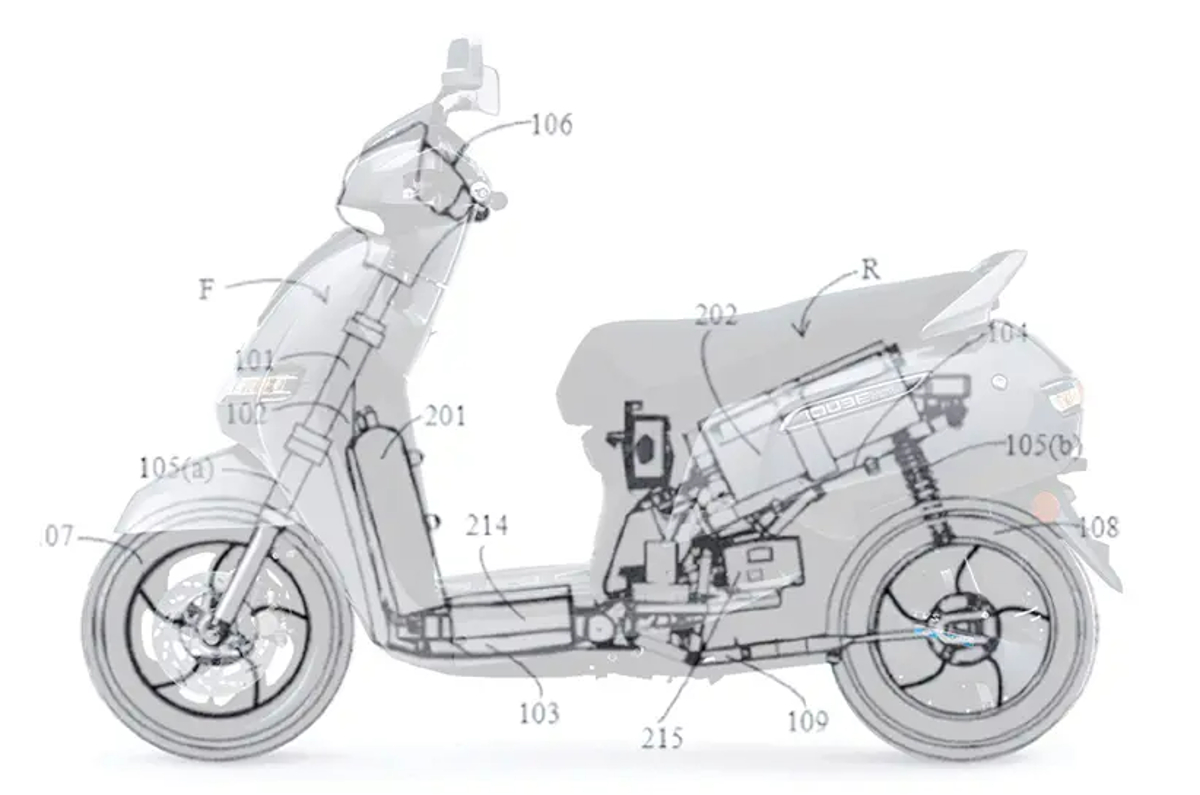
Leaked patent document reveals that the hydrogen fuel cell scooter will also get a battery pack.
With manufacturers the world over increasingly focusing on more eco-friendly modes of transport, electric vehicles are at the forefront of this green assault. TVS, however, has also chosen to dabble in another form of clean mobility – a hydrogen-powered scooter – according to a leaked patent document.
Hydrogen powered TVS scooter also gets a battery pack
The image in the patent shows two hydrogen ‘fuel’ canisters attached to the front downtube of the frame, allowing for easier access. Both canisters are linked via a pipe, with a filler nozzle on the front apron. The fuel cell stack, meanwhile, sits under the seat, where you might find the battery on a conventional electric scooter, making it easy to remove if required for servicing.
This patent also reveals that this scooter features a battery pack under the floorboard, the capacity of which is currently unknown. This battery provides extra performance on demand, and also stores energy generated from deceleration or braking. The battery pack can also be recharged by the fuel cell when power demands are lower.
While the patent document is sparse in terms of details about the motor, it’s likely to be a hub-mounted unit, similar to the 4.4kW one in the existing TVS iQube. While the iQube is good for a claimed 140km in its ST guise, before stopping for a rather time-consuming recharge, a fuel cell version could be topped up in minutes from a hydrogen filling station.
How does a hydrogen fuel cell work?
Like a battery, a fuel cell has two electrodes, with an electrolyte membrane in between. Where it differs is, instead of storing energy, like a battery, and hence needing to be recharged, a fuel cell converts fuel (in this case hydrogen) into electricity by reacting with oxygen from the air.
Currently, there are only two hydrogen filling stations in India, one at Indian Oil’s R&D Centre in Faridabad and another one at the National Institute of Solar Energy in Gurugram. Given the non-existent network of hydrogen fuel stations in our country, it is unlikely that we will get a hydrogen-powered vehicle anytime soon.
Would you pick a hydrogen-powered vehicle over a battery-powered one? Let us know in the comments section below.
